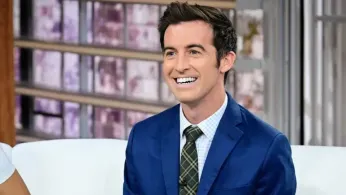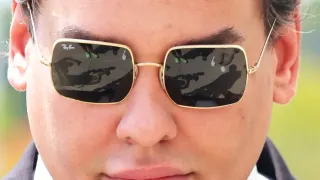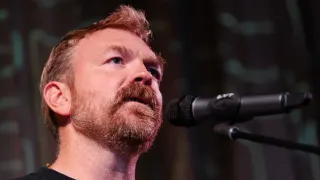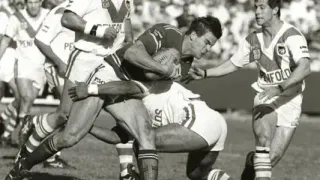
5 hours ago
GMA’s Will Ganss Criticizes His Hometown of Arlington, Texas, for Move to Revoke LGBTQ+ Protections
READ TIME: 3 MIN.
Arlington, Texas—a city in North Texas with a population of nearly 400,000—was set to become the first in the region to consider rolling back protections for LGBTQ+ individuals from its anti-discrimination ordinance. The proposed change, introduced by city staff, would remove sexual orientation and gender identity and expression from the city’s official definition of discrimination. If enacted, this would mean that Arlington would no longer process complaints from LGBTQ+ residents regarding discrimination in housing, employment, or public accommodations at the municipal level .
Though city staff cited concerns over compliance with federal directives and the need to protect $65 million in federal grant funding as the impetus for the proposal, LGBTQ+ advocates and many residents have voiced strong opposition. They argue that removing these protections would endanger the safety, dignity, and equal treatment of LGBTQ+ people in Arlington .
During the city council meeting held in mid-October, approximately 40 people spoke out against the proposed rollback. Community members, activists, and allies warned that the removal of protections would send a harmful message and could make Arlington less safe and welcoming for LGBTQ+ people .
Mayor Jim Ross addressed the controversy, stating, “We must balance the need to make modifications with the need to ensure that every single member of our community feels welcome, protected, respected, and is treated with dignity.” He emphasized the responsibility of city leaders to care for all residents, even as they navigate complex legal and financial considerations .
Following the intense public debate, the council voted to postpone any decision until at least November 18, 2025, seeking additional legal counsel. For now, LGBTQ+ protections in Arlington’s anti-discrimination ordinance remain in place .
Against this backdrop, Will Ganss—an out journalist and correspondent for ABC’s Good Morning America—publicly criticized his hometown for even considering the revocation of LGBTQ+ rights. Ganss, who grew up in Arlington, expressed disappointment and concern over the proposed changes, highlighting the emotional and practical impact such a decision would have on LGBTQ+ individuals in the community .
In statements shared via national media, Ganss called on Arlington’s leaders to uphold protections, noting that the rollback would not only affect legal rights but would also have a chilling effect on the sense of belonging and safety for LGBTQ+ residents. He underscored the importance of local protections in the broader context of rising anti-LGBTQ+ sentiment and legislative action across Texas and the United States .
Arlington’s situation is part of a larger trend of local and state-level actions that have threatened or rescinded LGBTQ+ protections in recent years. According to reporting by The Advocate, a growing number of municipalities in Texas and other states have faced legal, political, and financial pressures to reconsider or roll back anti-discrimination policies, often in response to changing federal guidelines or state directives .
Advocacy groups and legal experts warn that removing local-level protections leaves LGBTQ+ people vulnerable, especially in states where statewide nondiscrimination laws are lacking or incomplete. While federal protections exist in some areas—such as employment discrimination under the Supreme Court’s Bostock v. Clayton County decision—significant gaps remain, particularly for housing and public accommodations .
For many LGBTQ+ residents and their families in Arlington, the debate over the anti-discrimination ordinance is deeply personal. Community members have described feeling anxious and fearful about the prospect of losing legal protections, as well as angered by the suggestion that their rights are negotiable. Several have noted that the mere consideration of such a rollback can foster a climate of exclusion and uncertainty, regardless of the final outcome .
Local advocates continue to organize, encouraging residents to attend city council meetings, contact representatives, and share their stories to underscore the real-life importance of nondiscrimination protections. National organizations, including the Human Rights Campaign, have also condemned the move and pledged support for Arlington’s LGBTQ+ community .
The Arlington City Council’s decision to delay its vote has given advocates and opponents more time to mobilize and make their voices heard. As the November 18 meeting approaches, residents and observers nationwide are watching closely to see whether the city will reaffirm its commitment to inclusion or move forward with the rollback proposal .
The outcome in Arlington could set a precedent for other cities facing similar pressures, making this debate a touchstone in the broader struggle for local LGBTQ+ rights. For Will Ganss and others with deep ties to the city, the stakes are both professional and profoundly personal—a reminder that the fight for equality remains far from over .






